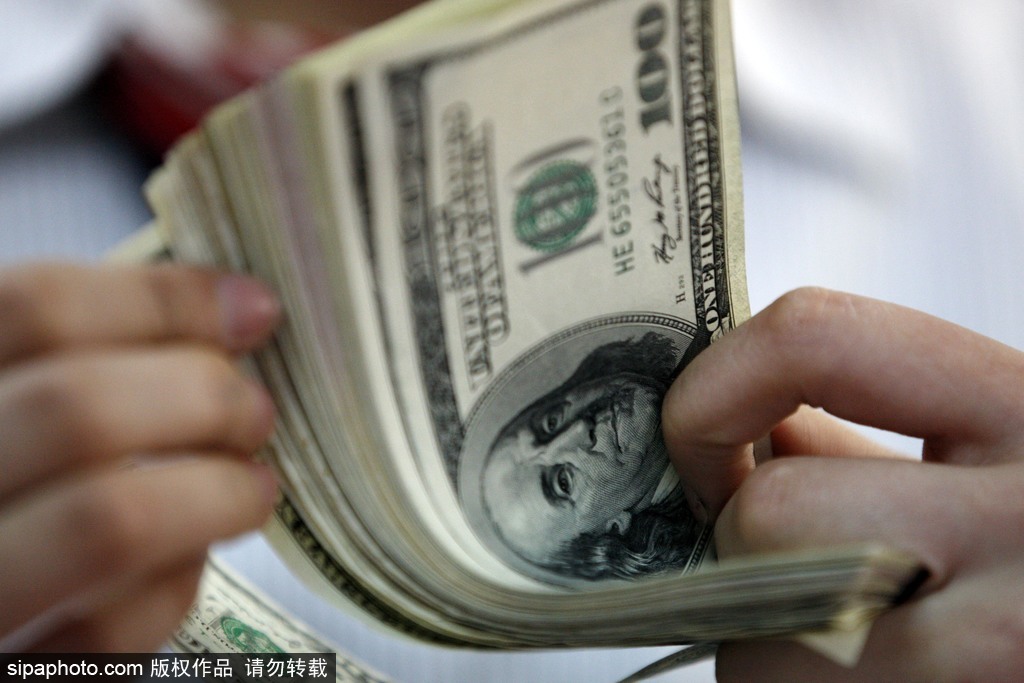Forex reserves rise to $3.16 trillion
By CHEN JIA | CHINA DAILY | Updated: 2020-09-08 09:00

Strong economic resilience, high-level opening-up measures sustain trend
China's foreign exchange reserves, the largest in the world, expanded to $3.1646 trillion in August, the fifth consecutive month of growth, as strong economic resilience and high-level opening-up measures bolstered momentum, experts said.
The State Administration of Foreign Exchange said on Monday that total foreign exchange reserves rose by 0.3 percent on a monthly basis to $3.1646 trillion by the end of last month, compared with $3.1544 trillion at the end of July.
The country's foreign exchange reserves have risen by $56.7 billion from the end of last year. Experts attribute the growth in reserves to the fluctuations in the US dollar index, especially at a time when major central banks have adopted monetary easing policies to offset the negative effect of the COVID-19 pandemic.
Influenced by the major economies' monetary policy expectations and macroeconomic data, nondollar currencies have appreciated against the US dollar. This has affected the financial asset prices and raised the total value of China's foreign exchange reserves, said Wang Chunying, deputy director and spokeswoman of the SAFE.
With the COVID-19 pandemic yet to be controlled globally, there are still many uncertainties in the financial markets, said Wang.
The SAFE official said that China's strong economic resilience, and the accelerated establishment of a "dual circulation" development pattern, which takes the domestic market as the mainstay while domestic and foreign markets complement each other, would be conducive to further growth in the foreign exchange reserves.
China's economy has recovered quickly from the COVID-19 outbreak, thanks to the resolute containment of the epidemic and the relatively effective policy stimulus. Globally, most of the economies still have a long way to go before they can see a full recovery after the COVID-19 induced plunge in output, said the experts.
Most of the major economic indicators in recent months have indicated that industrial and investment activities continue to run ahead of consumption.
Louis Kuijs, head of Asia Economics at Oxford Economics, said:"Going forward, we expect China's recovery to continue."
Kuijs expects China's economic growth in the fourth quarter of the year to be around 2.3 percent as recoveries in several major economies are facing head winds amid difficulties to contain the virus. He expects China's 2021 growth to be around 7.6 percent, slightly moderate from his earlier projections.
Buoyed by an optimistic economic outlook, the yuan has strengthened against the US dollar by nearly 5 percent since the end of May. Last month, the yuan appreciated by 1.8 percent against the greenback to around 6.84 per dollar.
Lu Ting, chief economist in China with Nomura Securities, believes that in the short term, some social and political issues in the United States may add to uncertainties in the economy and the same could cause further fluctuations of the US dollar index or further drive down the greenback.
But a long-term weakening of the US dollar is unlikely, and it is possible that the currency may rebound in the future. Hence it is advisable for Chinese investors to watch out for potential foreign exchange risks, said Lu.
Wen Bin, chief analyst at China Minsheng Bank, said that as China continues to deepen the opening up of the financial sector, more foreign investors will increase their holdings of yuan-denominated assets, which will boost cross-border capital inflows into the domestic financial markets. The inflows will support the foreign exchange market and help maintain the reserves at a stable level, he said.
























